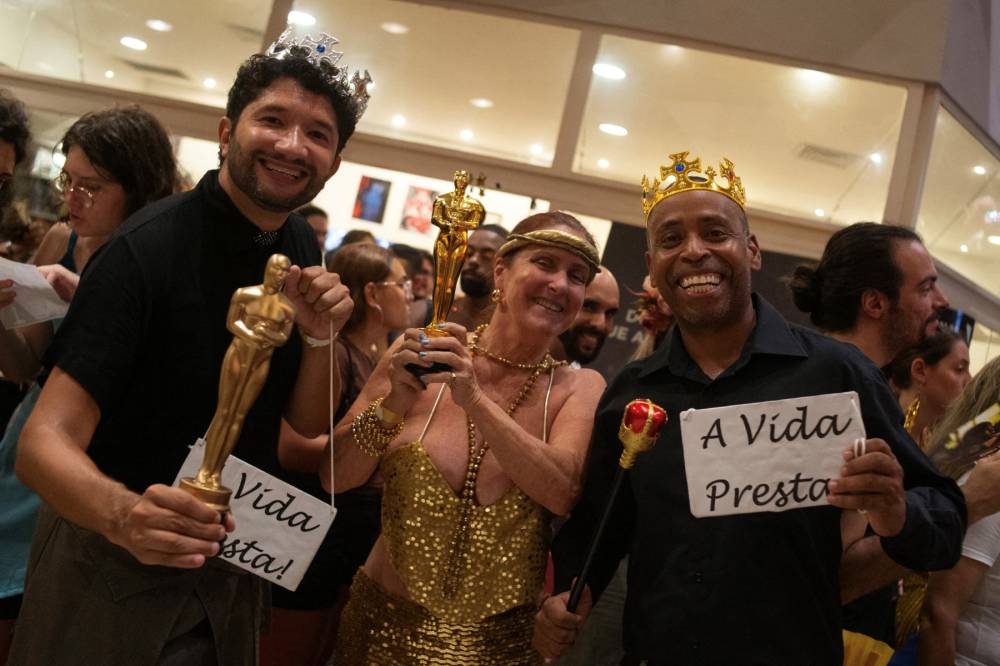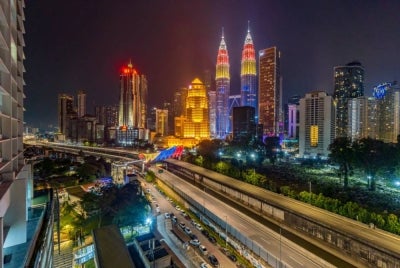Can FFM ever be Malaysia's Oscars? And how to make it a reality
This raises a crucial question—if Malaysian films are not even accessible, how can we expect Malaysians to support them?
MUHAMMAD NAIM MUHAMMAD ALI
AND the Oscar Goes To... Sounds hopeful, does it not? It is every thespian’s dream to hold the golden statue one day.
Sunday was the 97th Academy Awards, so it is only appropriate to start a discourse about this. But maybe, just maybe, the Academy is too far-fetched.
Let us aim for something more within reach, our very own Malaysian Film Festival or FFM, which, in all honesty, is our nation’s most prestigious recognition for film. If it is prestigious, why do Malaysians not bat an eye about it compared to the Academy Awards?
The buzz that we get on social media during award seasons, especially from the United States, is relentless. These award shows do not need much marketing to create awareness, yet people are raving about them. FFM? Not so much.
So here is my commentary about FFM, our so-called Malaysian version of the Oscars.

The Truth Is People Do Not Care About FFM
As painful as it sounds, Malaysians are simply not invested in FFM. Why? The biggest reason is the lack of engagement with the nominated films.
How do you expect people to celebrate the success of a film when they have never watched it in the first place? I am an avid cinemagoer, yet I find that Malaysian films are not only shown in limited cinemas but also lack appeal.
Let us be real—if a movie is poorly marketed, barely screened, and absent from social media discussions, how will the general audience care about its nomination, let alone its win?
Last year, I attended the Japanese Film Festival at Mid Valley, which showcased 13 titles throughout the week. Meanwhile, the films nominated for FFM 2024 were not given the same exposure. Since Malaysian films are rarely screened, why not follow the Japanese model?
The competing films at FFM are from the previous year, so why not dedicate a week to showcase them to the public, allowing audiences to form their own opinions and sentiments? Unlike Hollywood films, which benefit from dedicated campaigns and international marketing strategies, Malaysian films struggle to even get noticed.
When the nominees are announced, most Malaysians have never even heard of half of them. Without familiarity, there is no emotional investment, and without emotional investment, there is no excitement for FFM.
Limited Screens, Limited Impact
One major hurdle for Malaysian films is the lack of proper distribution. It is no secret that local films get sidelined in cinemas, often given fewer screenings and less desirable time slots. The situation worsens when a Hollywood blockbuster is released simultaneously, completely overshadowing any local movie.
This raises a crucial question—if Malaysian films are not even accessible, how can we expect Malaysians to support them? How do we expect people to watch them, appreciate them, and then celebrate their success at the FFM? This issue creates a vicious cycle.
Malaysian films do not get enough screens, so fewer people watch them. Because fewer people watch them, there is less word-of-mouth promotion.
With less buzz, cinemas become even less willing to screen them in prime slots. This leads to lower box office earnings, making it harder for local filmmakers to secure budgets for future productions.
The cycle continues, leaving our film industry in a stagnant state. National Film Development Corporation Malaysia (Finas) must take a more proactive role in breaking this cycle. It is not enough to focus solely on funding and production support—ensuring proper distribution is just as crucial.
Finas should work closely with cinema operators to secure more screens and better time slots for local films. Implementing policies that mandate a fairer distribution model could help level the playing field. Without intervention, our film industry will remain trapped in this cycle of limited reach and diminishing returns.
If we truly want to celebrate and elevate Malaysian cinema, we must first ensure that our films are given a fighting chance to be seen.

Lack of Hype: Where is the Buzz?
Think about the Oscars. Months before the actual event, people are already speculating about nominations. Social media is flooded with predictions, discussions, and debates.
Then comes the actual nomination announcement, reaction videos, breakdowns, interviews. By the time the ceremony happens, there is already a built-in audience that is emotionally invested in who wins and who does not.
Now, compare that to FFM. How many Malaysians even know when the festival is taking place? How many are eagerly awaiting the nominations?
More often than not, the general public finds out about FFM only after the winners have been announced. And by then, it is just another piece of fleeting news.
There is no build up, no anticipation, and no real connection between the audience and the event. The organisers may assume that simply announcing the winners is enough, but in today’s world of social media driven entertainment, an event without hype is an event that will be forgotten.
The big question is whether Malaysian films are any good. This is a sensitive topic, but it needs to be addressed.
The quality of Malaysian films is inconsistent. While we have standout productions like Duan Nago Bogho, critically acclaimed storytelling in Abang Adik, and high production values with strong performances in Sheriff, many films still fall flat.
Weak scripts, poor cinematography, and outdated storytelling continue to plague the industry. Excessive melodrama, predictable plots, and a lack of originality — seen in films like Mat Kilau: Kebangkitan Pahlawan—prevent Malaysian cinema from reaching its full potential.
When audiences walk out of a local film feeling underwhelmed, they are less likely to trust or support future releases. And if they are not watching, they will not care about FFM either.
The industry needs more films that push creative boundaries — stories that take risks, challenge norms, and bring fresh perspectives.
The success of Imaginur, which thrived through strong word-of-mouth support, proves that Malaysians are willing to rally behind local films if they are truly compelling. It is time to raise the bar and give audiences films worth celebrating.
At the end of the day, an award show is only as strong as the films it celebrates. If Malaysians want FFM to be as prestigious as the Oscars, then it needs to start with better films, better distribution, and better audience engagement.
We have talent. We have creativity.
What we need now is the right strategy to elevate our film industry to a level where Malaysians actually care about FFM.
Until then, the golden statue may remain nothing more than a dream for many.
But who knows? Maybe, just maybe, with the right changes, FFM could one day be the award show that Malaysians truly look forward to. Would that not be something?
Muhammad Naim Muhamad Ali, PhD, also known by the moniker Naim Leigh, is a lecturer at the University of Wollongong Malaysia. The views expressed in this article are his own and do not necessarily reflect those of Sinar Daily.
Download Sinar Daily application.Click Here!














